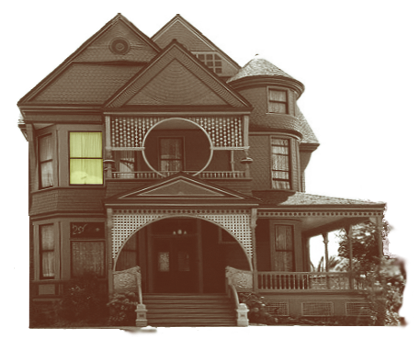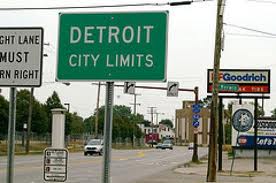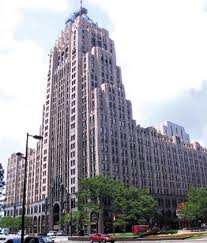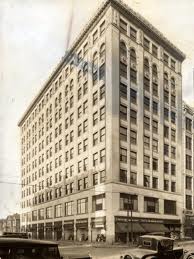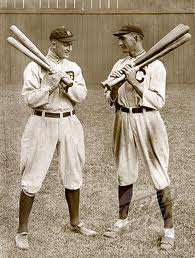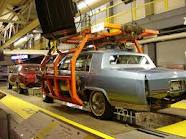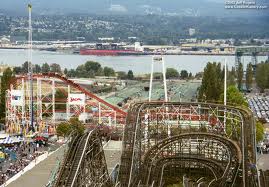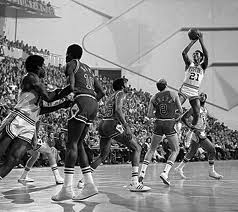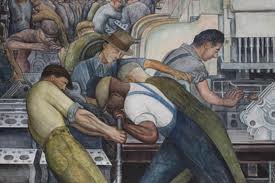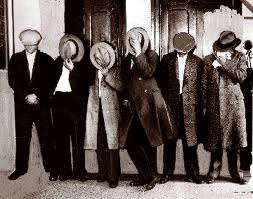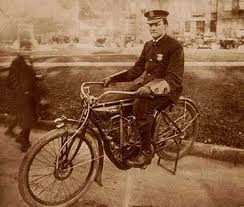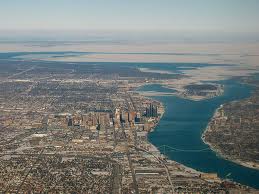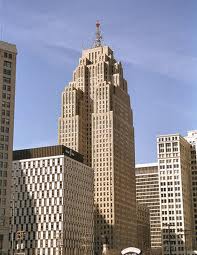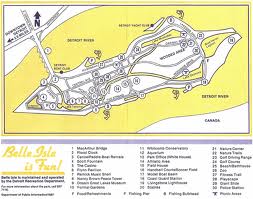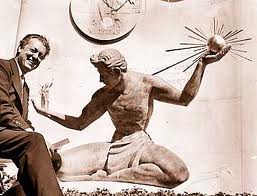Detroit : Staging
In the background throughout is the same Victorian style house that all the main characters inhabit at various times during the performance. At the top of the proscenium is a wooden rolodex which displays the current year.
ACT I
Scene I: A Construction Site. Day. 1973
The house is in shadow. At stage left on the edge is Eddie Powell inside a beat up 60’s era Cadillac with his arm out the window. At stage front right is Son at a podium speaking to the choir (dressed as citizens.) There is a construction fence behind them with construction equipment.
Scene II: The front of The House. Morning. 1919
The House is moved to mid-stage. The scenery is that of an upper-middle Detroit neighbourhood circa 1920. A tree-lined boulevard. Sounds of children playing. Grandfather is in front at the driveway getting ready to get in his car and make his daily drive.
Scene III: Inside Grandfather’s Car. The same day.
The house is hidden. In mid-center stage is a new car. Grandfather is inside, with the window down and his arm hanging out. A film plays on the backdrop showing scenes of contemporary landmarks as he drives through the bustling city.
Scene IV
Same staging as Scene II. It is 1942. The choir is dressed in contemporary as neighbourhood homeowners.
Scene V: Inside Grandfather’s Car. Day. 1945.
The house is hidden. In mid-center stage is a new car. Grandfather is inside, with the window down and his arm hanging out. A film plays on the backdrop showing scenes of the countryside as he drives to the army base to pick up his Son.
Scene VI: Evening of the same day.
Same staging. The rear driver’s side window is down and Son is in the back seat looking out the window.
ACT II
Scene I: Day. 1946
The son is restless. He sees all the growth in this city but he does not want to simply follow in his father’s footsteps. He wants to be his own success. But he doesn’t know how. He announces that he is leaving the house to buy a place in the suburbs.
Scene II: Day. 1949.
Grandmother is introduced to an auto worker Stanley and his wife Irene by Eddie Powell who acts as the family’s part time handyman. She decides that this young couple would be perfect to take the house and build their own family. She arranges to sell them the house on unbelievably generous terms; she feels like the house has been damaged by the war and desperately wants it to again be a place where a happy family is raised.
Scene III: Day. 1950.
Stanley moves in and sings a song about how happy he is that he is living the American dream.
Scene IV: Interior Of The House. 1968.
We see a split screen of all three families. Each watching their TVs as Apollo 8 orbits the earth and shows the first pictures of the earth. It is the apex of America. The Tigers have won the World Series. In spite of the previous years’ riots, everyone is optimistic about the future.
ACT III
Scene I: Interior Of The House. 1971
Stanley is off work. He’s very sick and worried about what will become of his family. He is angry. Although he has tried to keep up his house, the neighbourhood around him has declined. His family is the only white people left and many houses are abandoned.
Scene II:
Grandfather’s son has never been able to be a real success. As the years go by he resents Grandfather more and more for his success. As the city declines he realizes there are fewer and fewer opportunities.
Scene III: Exterior of The House. 1972.
After Stanley’s death, Irene moves out. Unlike the previous transition, she has no interest in who comes next and in fact, makes a point of knowing nothing about her successor. The factory is about to shut down and she feels like good riddance.
Scene IV: Exterior of The House. Next Day.
Eddie Powell’s daughter, Mrs. Little moves in with her nine children including Cedric. The house is now run down, and crime is on the increase. When Cedric becomes a teenager he begins carrying a gun and trying to act tough. By accident, the runs into Grandson and a strike up a friendship.
Scene V: Exterior. 1973
We’re back at the opening scene: Grandson making a speech at the ground breaking ceremony in front of the house he grew up in. He’s leveraged everything he has to be a developer for a neighborhood reclamation project. Everyone is trying so hard to be optimistic, but the oil crisis has begun and it’s not so easy.
Scene VI: Afternoon of the same day.
While the ceremony is going on, grandson and Johnny are arrested. The son refuses to help because he is worried about the embarrassment it might cause to his scheme and he is a hard ass.
Grandfather goes to the police station to bail out Grandson and Johnny. He learns that Johnny has been killed by the police. He offers to take grandson back home but grandson says that he has no home. He says that he hates Detroit. Detroit, was built on a lie. People bought cars, but the cars were not very good. And now that they cannot sell cars, no one cares about the city. The city only existed as long as people could make money. My father is only trying to make money. He doesn’t care about the city. In fact, the city destroys everyone, and now it’s destroying itself.
Scene VII: Evening of the same day.
Grandfather begins crying. They walk to Grandfather’s car and get in. Grandfather stars driving, without direction. Without realising, instead of the freeway, he takes what would have been in his day a scenic drive, matching the drive he used to make in the beginning of the opera. And as he drives he sings the an elegy of all the great places that he remembers but which are no more.
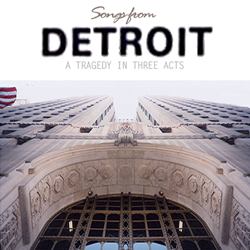
If you purchase the CD, you will also have the opportunity to download the Digital Album and get some instant gratification while yer waiting for the postman.
Either way, if you're getting a download, it will be served up as a 'zip' file with all those juicy MP3s stuffed inside.
Do not attempt to download via smartphone. Please use a computer!




